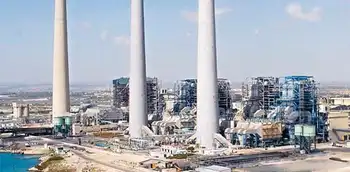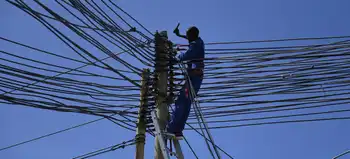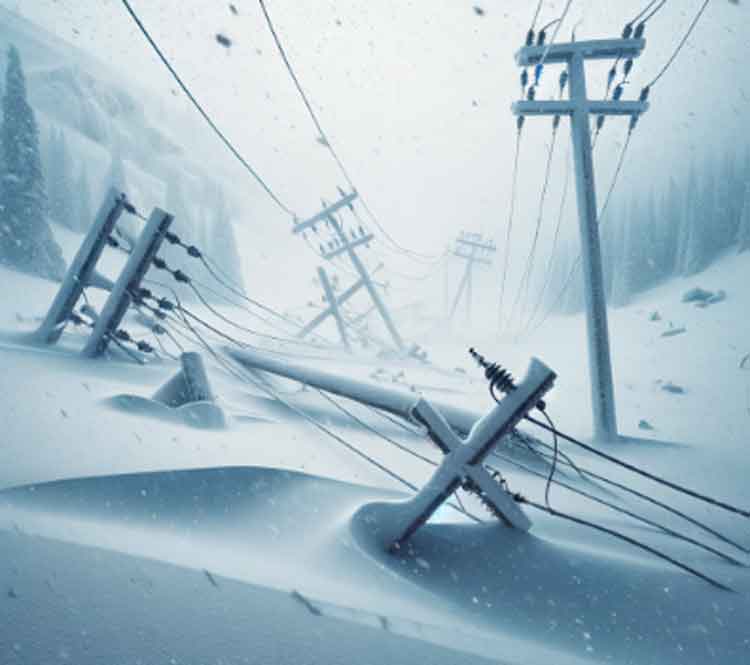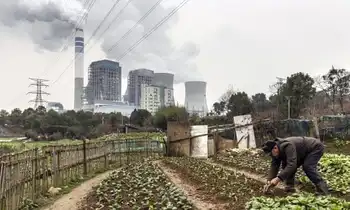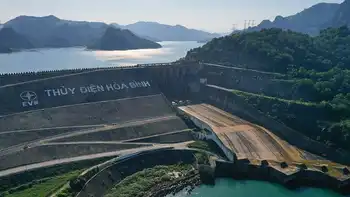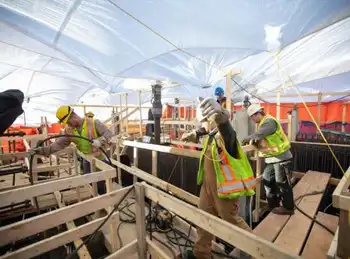Tories mum on nuclear waste proposal
By Toronto Star
Protective Relay Training - Basic
Our customized live online or in‑person group training can be delivered to your staff at your location.

- Live Online
- 12 hours Instructor-led
- Group Training Available
The Global Nuclear Energy Partnership, an initiative launched by U.S. President George W. Bush last year, meets in Vienna on Sunday and Canada's participation – or lack thereof – remained a closely guarded secret.
A spokeswoman for Prime Minister Stephen Harper referred questions about the nuclear group to Foreign Affairs Minister Maxime Bernier's staff.
And with only three days before the event, a spokeswoman for Bernier said no decision had been made.
"We are fully assessing possible future implications prior to making any decision on joining the Global Nuclear Energy Partnership," said Isabelle Fontaine, the minister's director of communications.
Queries to Natural Resources Minister Gary Lunn, who has responsibility for nuclear issues, went unanswered.
Opposition parties said the continuing silence was unacceptable on the eve of an event that could have profound environmental consequences in this country.
"They're just hoping the issue will go away, the interest will die down and they do whatever they want in secret," said Liberal natural resources critic Mark Holland.
"If they're refusing to talk, you have to ask why. This is a huge decision – whether we're going to take part, whether we're going to allow nuclear waste to be imported from other countries."
The initiative proposes that nuclear energy-using countries and uranium-exporting countries form a new association.
The intent of this new nuclear club would be to promote and safeguard the industry. But at the heart of the plan is a proposal that all used nuclear fuel be repatriated to the original uranium exporting country for disposal.
Canada is the world's largest uranium exporter.
The continuing silence means only one thing to New Democrat MP Nathan Cullen: the decision to take part has already been made.
"These guys are in this negotiation and they're terrified to bring this back to the Canadian people because they will be slapped silly," he said.
Australia, another huge uranium exporter, has been engaged in a loud, angry debate about the partnership and Cullen said Harper's Conservatives, who hold a minority in the Commons, have watched that situation with alarm.
The initiative also proposes to find ways to reprocess spent nuclear fuel – an idea that has prompted France and Japan to sign on. Both of those countries are researching sodium-cooled fast reactors, which are meant to make nuclear energy production more efficient.
Bernier said Canada would make a decision on whether to participate within "a matter of days."
One of the biggest criticisms of the initiative is that it forces participating countries to develop uranium enrichment or reprocessing technology right away.
Before Canada makes a decision whether to join the partnership, there should be open public consultation, Liberal Leader Stéphane Dion has said.
Environmental groups are against Canada becoming involved in the organization and accepting spent fuel for refinement.
"That's all we need – a plant to reprocess uranium in Canada," said John Bennett of ClimateforChange.ca
"It's an exceedingly dirty process and it creates more high-level wastes than we're already producing in own reactors, and when you start to reprocess the chance of the material getting into the wrong hands increases."
Bennett has been a longtime opponent of nuclear power.
Talking points prepared for the Conservatives in 2006 show there is enthusiasm within the government for the Global Nuclear Energy Partnership and that Canadian officials have already held talks with U.S. counterparts on becoming involved.





